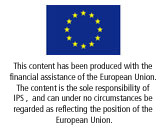By Busani Bafana
RIO DE JANEIRO, Jun 20 (TerraViva) A majority of the 150-member Cooperative for the Conservation of the Environment (COOCEN) in Kigali, Rwanda are empowered women, who must balance raising children, managing homes and providing food.
The women earn at least 50 dollars a month from making briquettes, an alternative source of fuel to the firewood and charcoal blamed for worsening climate change and deforestation. While seemingly small, the extra income has made a big difference in their lives, they say.
Vestine Uwimana, a mother of five, says being one of the 110 employees of the cooperative has helped support her family, providing food and paying school fees for her children. In addition, she enjoys a better livelihood and has money in the bank.
“I now have access to a bank account, my colleagues and I can save money,” said Uwimana. “I have subscribed to a pension scheme and health and disability insurance.”
COOCEN was launched in 1992 and today produces around 1,500 tonnes of briquettes per year as an alternative to firewood. It is one of more than 2,700 projects in over 160 countries that have benefitted from the Small Grants Programme (SGP) of the Global Environment Facility (GEF).
Uniting 182 countries in partnership with international institutions, civil society organisations (CSOs) and the private sector, GEF, formed on the eve of the 1992 Rio Earth Summit, is currently the largest public funder of projects to improve the global environment.
Through its SGP, GEF has given 10.5 billion dollars in grants to 14,000 projects and leveraged 51 billion dollars in co-financing directly to civil society and community-based organisations since 1991.
Convinced that the equal participation of women in environmentally sustainable initiatives must not be a token gesture, GEF has developed a gender policy to track how the beneficiaries of its SGP have made real, positive changes in women’s lives.
The Policy on Gender Mainstreaming calls on the GEF and its partner agencies to standardise gender into GEF operations, including efforts to analyse and address in GEF projects the specific needs and roles of both women and men.
GEF chief executive officer and chairperson Monique Barbut said while it was easy for organisations to pay lip service to gender, GEF has gone a step further to include gender as one of the issues under the Results Based Management System governing the multilateral institution.
“This means in very single GEF project, agencies that are developing GEF projects have experts who are going to tell us what exactly they are targeting in terms of gender and we measure it at the end of the project,” said Barbut.
“There is no one gender policy, because if you are working on biodiversity or energy the problems are not the same, and so we now have put a target towards the gender issue in all projects,” she said.
According to the text for the Rio+20 summit released on Jun. 19, negotiators recognised gender equality and women’s empowerment as important for sustainable development and a common future.
They further recognised that although progress has been made on gender equality in some areas, women’s potential to engage, contribute and benefit from sustainable development has not been fully realised due to social, economic, and political inequalities.
Barbut told TerraViva that while it would be good for Rio+20 to come up with a strong commitment on gender, current negotiations were far from producing concrete results.
Keylah Tavares, a member of the Brazilian Organising Committee responsible for sustainable projects, told TerraViva that having worked with GEF-supported projects in Brazil, the gender policy will help ensure that more women participate in sustainable development initiatives.
Chief Beatrice Ubeku, founder and CEO of the Women Care Association of Nigeria, who works in capacity-building projects focusing on solar lighting for women, said gender policies ensure women equally work for a sustainable future.
“The gender policy developed by GEF is a plus for women because their role in sustainable development is being recognised and it is the way forward for gender equality,” Ubeku told TerraViva.



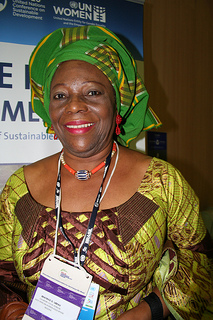
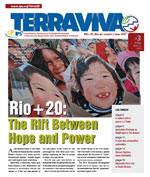
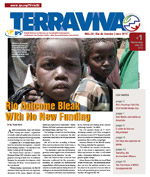
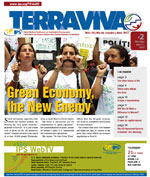

 Add to Google
Add to Google




